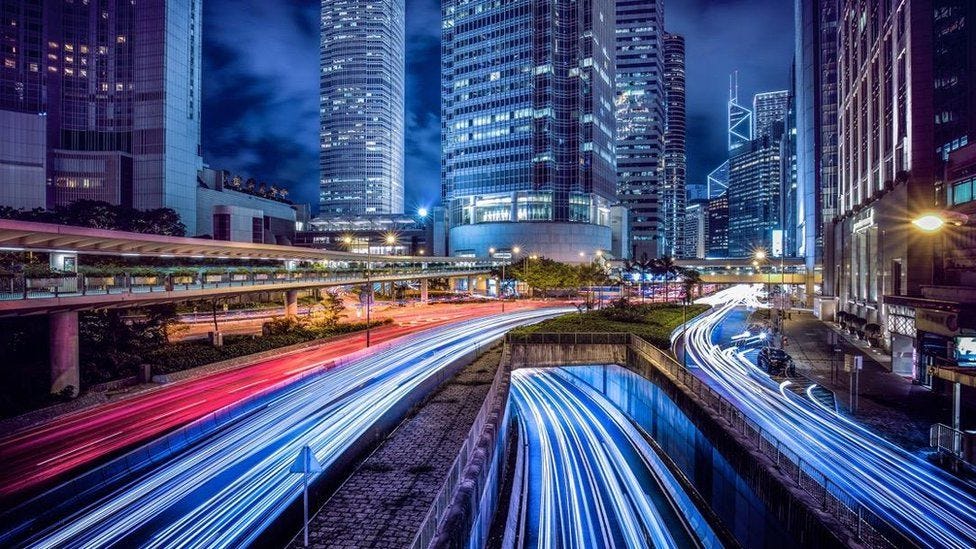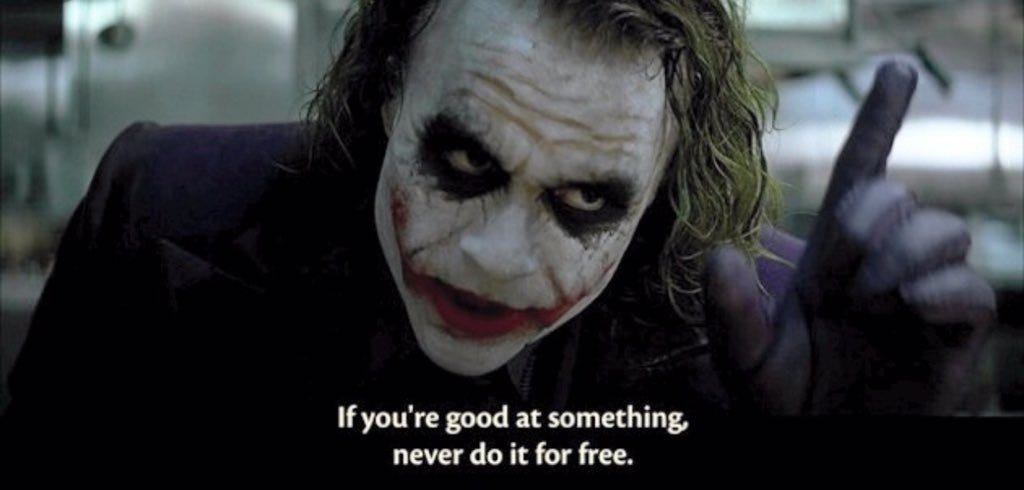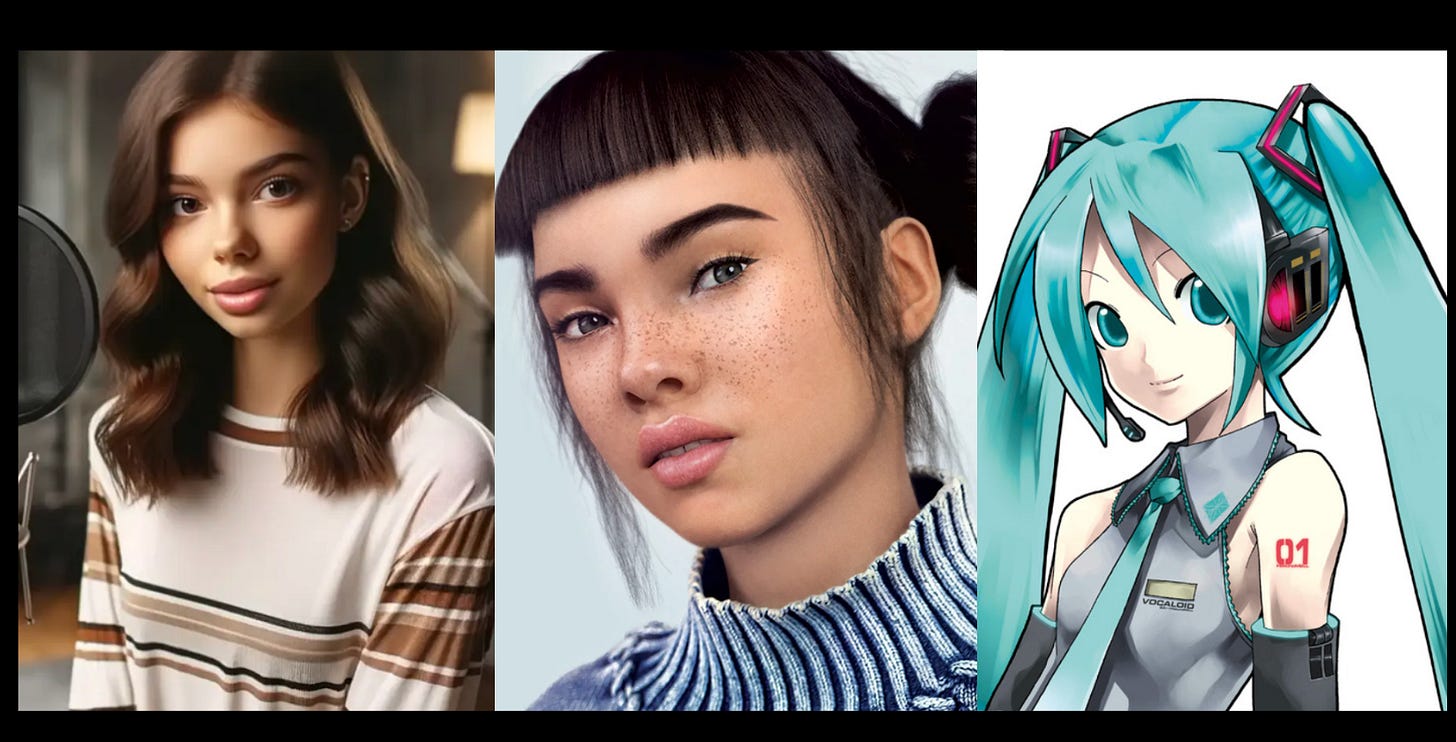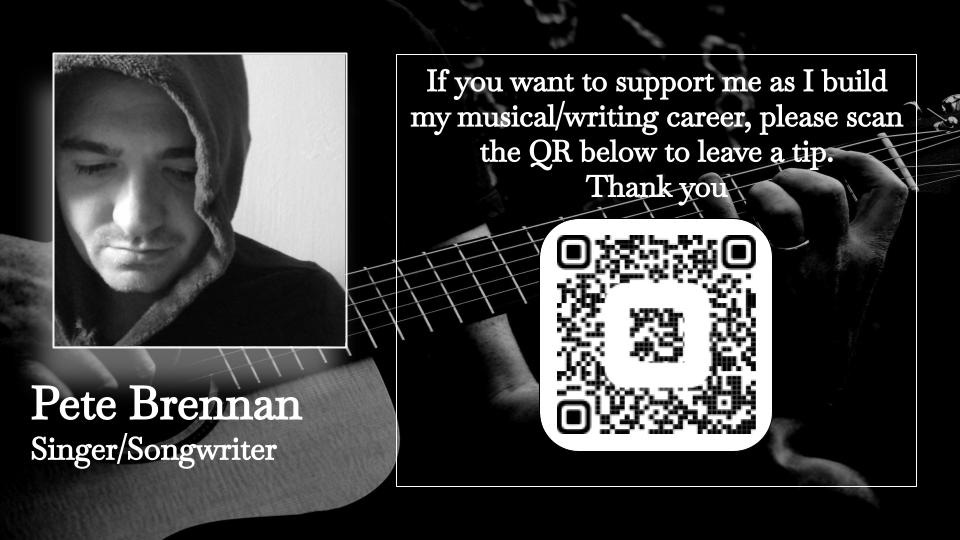This is a repost (and renaming) of an older article that very few people read because of my low subscriber count at the time. It’s the second part of a series I wrote that outlines my thoughts on music streaming services, the music industry and my career plans going forward. The first part, ‘Should Musicians Boycott Spotify’ is out now.
A few days ago, I re-published an old article on this SubStack in which I aired my considerable grievances with the streaming service business model from an artist’s perspective.
Spotify was in the news a lot in early 2024 and faced a lot of criticism (deservedly so, I reckon) from artist’s for their approach regarding the payment of royalties and how they are operationalising AI music technology.
Through a combination of my interaction with people in the comment section of Sam Buckingham’s Facebook post, the posting of my first article and in-person engagement with family and friends, I had the pleasure of taking part in dozens of fascinating conversations about this topic.
A few comments on the Facebook post particularly stuck out though, as they brought up a key point about my assertions that (if you’ll allow me to toot my own horn for a bit) I have repeatedly addressed over the years and thus added more weight to my take than most other peoples takes that one might hear. (Tooting, desist!)
Several people praised me (my head doesn't fit through my front door anymore) for not just bemoaning the sorry state of affairs of the modern music industry created by the streaming services like so many do, but also offering a potential solution. This is important I feel as it takes very little to moan and begrudge (and a lot indeed do about a lot of things), but precious few offer solutions and put forward potential fixes.
I am a fan of the incredibly successful businessman Alex Homozi as he has an admirable ‘no bullshit’, ‘personal responsibility’ approach to life and credits that mental framework for a lot of his success. He calls any grievance someone raises as a barrier to success ‘an excuse’ and always replies to any of them with ‘Okay! And? Now what?’
Some people do have legitimate grievances admittedly, (like musicians have with the streaming services), but no amount of self pity or complaining is going to magically make your situation change. The cards you have been dealt are the ones you have got to play with and reality doesn’t give two shits how you feel. Instead of accepting our shitty situation, we need to dust off our thinking caps and build something. It’s the entrepreneurial spirit that we will need if we are going to build a new landscape for musicians to thrive in. I believe we can do it, too. ‘The pessimist gets to be right and the optimist gets to be rich’.
So what is the potential solution that I am offering? Well, in short it is paid subscription services like Patreon, Locals, SubStack or even (maybe) OnlyFans.
A business model built on cultivating a small, but loyal fanbase who would be willing to pay a few quid (Yeah, I’m British! So, what? More tea, Guv’nor!) per month to have access to the artist’s music. The artist would have complete creative control over their work, could engage directly with fans who are genuinely interested in them (by definition they would be because they pay to subscribe) and crucially they could keep all (minus service fees) the money they generate from their music.
This is based on ‘The 1000 True Fans’ theory posited by Kevin Kelly in 2008 where he suggests that an artist can make a living from a small but loyal audience of paying supporters. Mapping that model onto SubStack would be huge as 1000 paying subscribers paying a monthly paid subscription fee of £5 (still British) would earn an artist £5000 per calendar month minimum (£60,000 per annum). That seems somewhat unrealistic and overly ambitious for most musicians. But a more modest audience target of say, 200 monthly subscribers, would go a long way to paying their monthly bills.
Even making enough from their subscribers so they only have to work a part time day job would be greatly beneficial to the artist in terms of both productivity and artistic fulfilment.
This is the goal I am setting myself as I desire a form of income that affords me the time to pursue my artistic endeavours (both musical and essay writing) while preserving my artistic freedom. I want to attract like-minded individuals who (like me) care about lyrics and songwriting but (like me also) are deterred by AI, the performative nature of the music industry and streaming services not paying fairly for ‘content’ [bleurgh].
On that last point, Spotify only pays out after 1000 streams at a rate of (best case scenario) $0.003 per stream, so the best an artist can make is $3 per 1000 streams. Compared to these rates, even if the artist charged their private subscribers £1 (as I said, British) per person, per month and only had 4 monthly subscribers, that artist would make 25% more than an artist who had one individual song stream 1000 times on Spotify.
So, as I said in my previous article, Spotify can be lucrative if you’re getting millions of streams like Taylor Swift, Ed Sheeran or The Weeknd, but for smaller artists it is, at best, a useful tool to promote your artistic brand (by sharing your music for free, of course) or, at worst, a waste of your time.
[Sidebar]: These streaming services seem to me to be the ‘Play for Exposure’ attitude that is common among scumbag venue managers who want bands to play for free (‘because you love music. man’), but scaled up to the scale of billion dollar corporations. The same people are ultimately to blame for this in my estimation; the artists who comply with these demands and opt in to these exploitative arrangements. As the Joker said in THE DARK KNIGHT; ‘If you’re good at something, NEVER do it for free’. [End Sidebar].
But I know what you’re thinking. You’re thinking two things. Firstly you’re thinking ‘Why am I reading this fat loser’s SubStack?’ I can’t help you with that question at all (but thank you for reading btw). The second thing you’re thinking is ‘The subscription model works for Only Fans girls because the internet is a bottomless cesspit of lonely perverts who’ll happily part with their hard earned cash in exchange for ‘feet’ photos, but why would it work for musicians’?
Well, my prudish little friend, I believe it will work for two reasons.
The first reason it will work is the same reason that those low status men pay for their interactions with beautiful women who wouldn't look at them twice on the street; scarcity. We value what is rare or hard to come by. The loser has no realistic chance with these women (and knows it deep down), and that adds enormous value to these interactions for him. It’s the holy grail in his eyes, the one thing he could never get for real, the attention of an attractive woman. It's desirable and rare, and is therefore worth paying for.
So how do I map this economic concept of scarcity onto the future of music? Well, music nowadays is (how do I put this?)... well it’s shit! I know, I know, I sound like an old man, waving at clouds and moaning about how it was better in my day and that is all true. But it is also true that music is getting worse and will continue to get worse because of AI.
In my previous article ‘The Lure of the Real’ I explained why I firmly believe that very soon AI will not only take over the vast majority of music creation in pop culture at large but also that that music will inevitably deteriorate in terms of innovation, novelty and uniqueness as the AI will repeatedly iterate on its own output over and over again to the point of homogeneity and banality.
The pop music charts of the near future will almost certainly be dominated by AI pop stars as they are the perfect products to the corporations who own their IP. Never ageing or sick. Never tardy and always singing in perfect pitch and time. Never depressed (as artists often are let's be honest) or in need of a rehab visit. Never turning up in court. Never irritatingly asking for contract renegotiations or a higher cut of the royalties. Why would these companies bother with human artists at all when this is an option? Well, they won’t, and the only songs charting in the Billboard 100 or Top 40 (British) will be sung by Ai pop-stars like Anna Indiana, Miquela or Hatsune Miku (Version: 17.1).
Dystopian prediction, right? I honestly believe it is only a few years away, but I also believe this will inevitably trigger a counter cultural movement of people who crave humanity in the music they listen to which they will in turn seek out online. And they will find musicians offering that kind of service on platforms like this one. Human beings who are putting out human music with human vulnerabilities, eccentricities and imperfections. Art as an expression of being human will be the scarce resource that people seek out in a world where the over-saturation of cold (and dare I say soulless) AI art is inescapable. Their music will offer people the one thing (most important thing) that AI music is lacking, a human connection.
So these artists could build small communities of loyal fans who pay for the honour of listening to their music. This could mean a change in the way we measure what constitutes ‘success’ in the music industry, as these artists, who are adored by their own little communities, would be essentially unknown to the larger world (Sign me up!! That sounds AMAZING! Making music for a living but still being able to walk to the shop to buy milk unmolested. What a dream).
The AI pop stars of the future will probably be the ‘musicians’ we see day to day on billboards or in adverts or selling out Wembley (again; British), but the Patreon musicians could be the Big Fish of their own little individual ponds, making a livable wage and having a deep connection with their modest fan bases. I can live with that. If you want to be one of those in my niche fan base, please hit the ‘Subscribe’ button below.
So reason one is scarcity. But what is the second reason that makes me believe this approach will work?
Well, evidence! Proof, even. It does work or at the very least we have a proof of concept, (and I’m not talking about twerking Only Fans girls sticking ‘you know what into you know where’). I’m talking about real musicians, making real money from the online subscription model. Ladies and Gentlemen, I give you SubStack's very own, FogChaser.
is a musician and writer who publishes some samples of his music catalogue on SubStack regularly and he has over 200 subscribers at the time of writing. Admittedly I can’t possibly know how many of those are paid subscribers and if so what payment tier they are all on but the audience is there for the free content he puts up at least. How much coercion would it take to get those free subscribers who enjoy his music enough to follow him to take that extra step and pay $5 per month for full access to his back catalogue?I argue, not that much. As he continues to grow his audience, more and more will surely sign up for paid. When he eventually hits 1000 free subs, a 10% conversion rate to a paid $5 monthly plan would earn him a $500 per month. That wouldn’t pay all his bills but it would free up a lot of time for a lot of artists as they would spend less time at a day job.
I would even offer up a monthly subscription for less than that minimum price to generate a larger audience and I imagine that may become an option in the future as SubStack expands into new territories such as video content that will bring in creatives from a whole new collection of fields. These diverse creators will need a more diverse set of payment options to cater to their individual audiences.
Fogchaser and I are not alone however. On Sam Buckingham’s Facebook post last week, I had a reply to my comment from Scottish singer/songwriter Vivien Scotson who told me she removed her music from the streaming services and now uses Patreon for distribution to and engagement with her audience. She uses her other social media pages to promote it and funnel traffic towards it, not unlike the methodology used by us SubStackers to get the word about our newsletters out.
You can subscribe to Vivien’s Patreon account here.
Another comment on the same post told me about another singer songwriter who had been sharing her music directly to fans via Only Fans. By all accounts her experience went EXACTLY as one would expect given the public perception of that platform (eew!) but apparently she was undeterred and tried the same approach on a less ‘foot photo’ centric platform.
But it is not just those that came to my attention through direct contact that are doing this. I typed ‘musician’ into Patreon’s search function and it returned 60 results, many were not specifically musicians who were sharing their musical content but a large proportion of them were.
The same search in SubStack returns what one would expect; mostly those identifying themselves as musicians but either only share their written work or don’t actively post original content. I’m sure if I checked them all out I’d find others like FogChaser but I haven’t taken the time yet.
But the winner is… Locals. I searched that site for ‘music’ (because it asked me to search by ‘Communities’ and I dunno why but I thought music made more sense) and it returned pages and pages and PAGES of results: scrolling ad infinitum (figuratively). I tried to thin it out by changing it to ‘musicians’ and the same deal: dozens and dozens of accounts with ‘musician’ in their tags.
So did I miss the boat? Has music already taken the left turn into the paid subscription model and I missed it? Maybe. But very few of these accounts look professional like Fogchaser’s SubStack. Most look like your uncle's Facebook account, complete with profile pictures taken at a family barbeque and wearing sunglasses that don’t suit the shape of your face. Sorry, it’s just that guy's picture is so weird. (You’re going to go looking for it now, admit it).
I think the precedent has been set, and it is time for musicians around the world to unite and take a leaf out of Bender’s book (Futurama) and tell the music industry ‘Screw you, I’ll build my own’.
Thank you for reading
Pete Brennan (Musician/Writer) - aka The Common Centrist















not crazy - love this and i'm officially starting to #boycottspotify today
Not crazy at all and I totally agree. I had imagined 10 or so years ago when I was thinking about this topic that this would actually be more prevalent by now. I had a coaching client who was producing a video series and the best idea I had for him to monetize his work was a combination of youtube and subscriptions. Ad-supported doesn’t work for the “small loyal” fanbase, obviously.
I’m not sure “AI” (I have great disdain for that label due to its complete inaccuracy) produced music could possibly be worse than what seems to be coming out these days, but I have small children and don’t have a lot of time to listen to new music. I also tend to underestimate how shitty things can get.
The advantage of something like substack as a distribution medium (or at least a connection point of some sort) is their suggestion/matching algorithms are aligned with your goals. Both substack and you want to convert people into paid subscribers.
The biggest challenge for artists, and pretty much anyone, is marketing. This is why the future is to be true to yourself and express who you are as honestly and courageously as possible. Then the matching algorithms can do what they do. That’s what marketing does. Only after the initial connection occurs can the sales process begin. Thus substack can be a great marketing channel.
I wish you the best using this approach. This and live performance are the way to go these days given the corporatization and commoditization of the “music industry” these days. We thought it was bad 40 years ago.